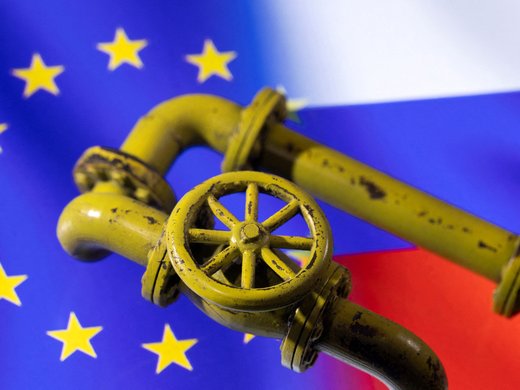It’s time for cool heads, not snap judgments. There is time and reason to proceed cautiously on the questions of war and peace raised by the attacks on Paris, Beirut, Ankara and, most recently, Bamako. We should not let terrorists, however depraved, provoke us into changing our policies on the fly. But we also should not carve our positions into stone. Foreign policy is 10 per cent elective and 90 per cent reactive, and adjusting to outside events is in the nature of things. Nor should we retreat into isolation or yield to xenophobia.
In reflecting on what Canada should do, five disparate factors strike me as important for our policy-makers to bear in mind.
First, because parliamentary authority for the Canadian military participation in the fight against the Islamic State lasts until the end of March, we can afford to take some time to understand the significance of a number of pertinent international developments.
These include, for example, the prospects of success of the Syrian peace process announced recently by Russia and the United States; the call by the French government for a single anti-IS coalition led by the United States, Russia and France; the right of France to seek to invoke Article 5 of the charter of the North Atlantic Treaty Organization requiring NATO members to come to its assistance; the possibility that the downing of the Russian airliner will make Russian President Vladimir Putin more willing to co-operate; and the prospects for collective action pursuant to Friday’s UN Security Council resolution.
Further, it takes time to understand the Rubik's Cube of interests in play involving the United States, Turkey, France, NATO, the European Union, Russia, Iran, the Kurds, Hezbollah, Israel, Jordan, Saudi Arabia, the Gulf States and China, not to forget Iraq and Syria – or what’s left of it.
Second, the villains in this conflict are manifold and the good guys scarce. Concentrating on defeating IS and turning a blind eye to the murderous Syrian President Bashar al-Assad, as the Russians and some others would pragmatically do, would be not only immoral, given the rivers of blood he has caused, but also a recipe for endless conflict.
If IS is defeated and Mr. al-Assad is left in place, other terrorist organizations will probably materialize because of the injustices at the heart of the conflict and the vast casualties he has caused.
If, on the other hand, IS or some other rebel army prevails in Syria, other rivers of blood are likely to flow as retribution is exacted on those who aligned with Mr. al-Assad, including Alawites, Christians and Yazidis. Some sort of UN-mandated military intervention with boots on the ground will probably be necessary, as it was in the Balkans, to prevent widespread carnage.
Third, the cornerstone principle of NATO is that an attack on one ally is considered an attack on all allies. It was invoked in response to the al-Qaeda attack on the United States after the terrorist attacks of Sept. 11, 2001. If all NATO allies agree that France is entitled to protection under Article 5, Canada is treaty-bound to contribute to that protection.
But how and what we would contribute in such a case would be for the federal government to decide, not NATO. The range of our responses can run from diplomacy to armed intervention alongside our partners.
At the same time, our various allies are unlikely to “understand” if we were to decide to leave the dangerous work entirely to them. This is not the 2003 Iraq war, with its imaginary threat of weapons of mass destruction and a U.S. administration hell-bent on war. This is 2015, and our allies are being subjected to mass-casualty attacks by terrorists.
Further, the beleaguered front-line states of Turkey, Jordan and Lebanon need relief from the refugee burdens they are disproportionately bearing.
Fourth, some perspective is necessary. As the attacks indicate, IS can wreak havoc well beyond the borders of Iraq and Syria. But these have been tactical attacks that, while catastrophic to the victims and disruptive to our societies, do not constitute strategic, existential threats to the world’s nation states. We are not fighting a war between civilizations; rather, we are responding, as U.S. Secretary of State John Kerry said, to a war against civilization – against the common humanity of Muslims, Christians, Jews and other believers and non-believers.
Declarations of war are dramatic and useful in rallying the support of a shaken public, but they also confer a kind of adversarial equivalence on the terrorists that strengthens their appeal to the alienated and radicalized, whose economic prospects are dim and whose social prospects are dimmer. Such declarations also feed Islamophobia, which only divides societies and makes the search for solutions more difficult.
Fifth, as for Canada, we, like others, cannot be defeated by terrorists but we can grievously harm ourselves if we scare ourselves into sacrificing too much liberty and dignity for security.
In a world rent by xenophobia, Canada has stood out as a successful society that has profited from refugee flows and immigration better than any other country has done. We can do it again this time with Syrian refugees. We are rare in our capacity to integrate foreigners into our society and to make the consequent diversity a strength.
The example we set is heartening to many people abroad who admire what we achieve and who aspire to the same for their own societies. Our cosmopolitanism is an extraordinary strength that anchors our well-being in a global sea of instability. We should take the time to ensure that our domestic- and foreign-policy choices do not put it at risk.


